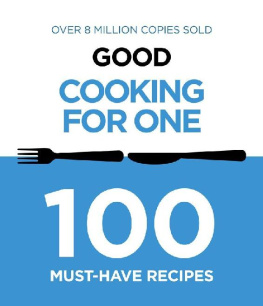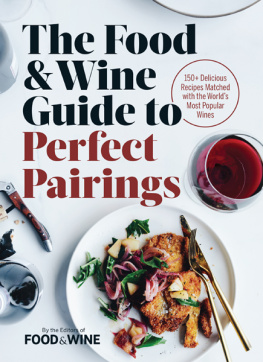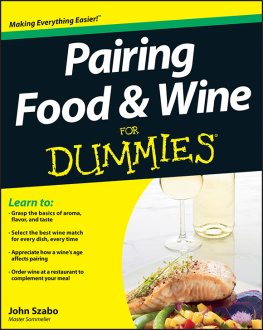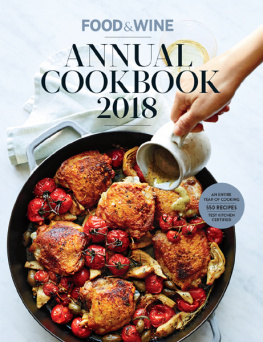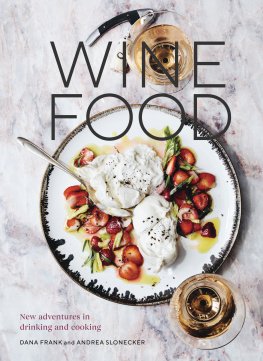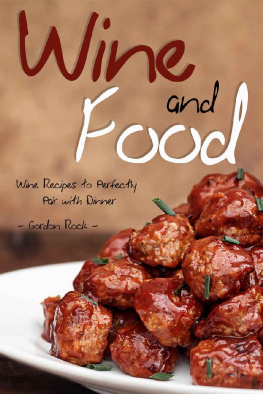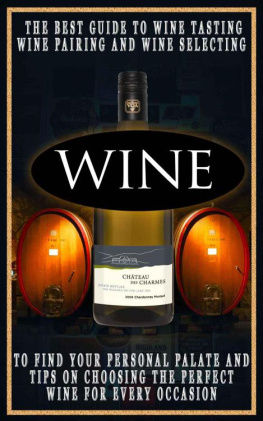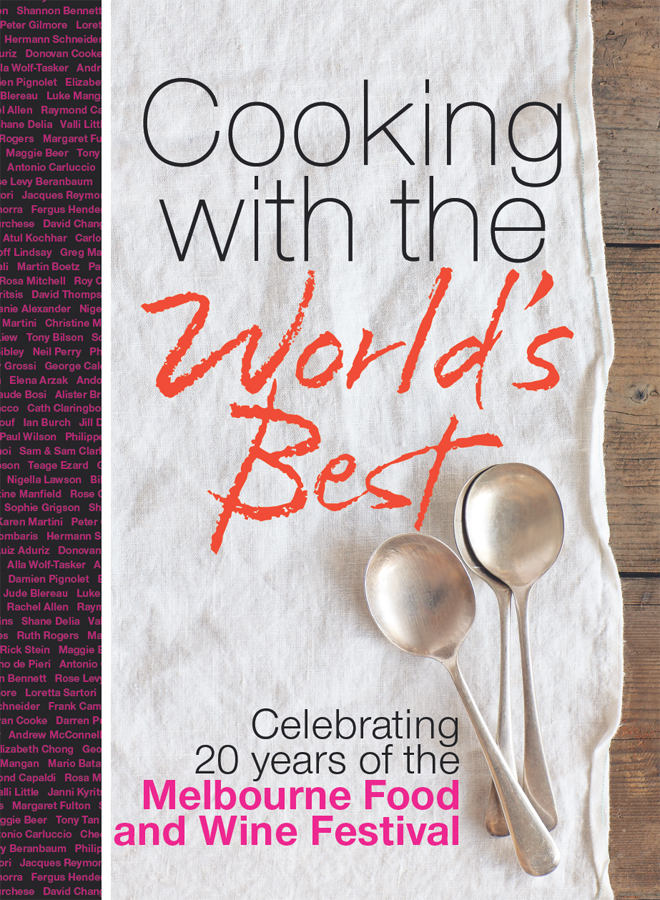Started by Peter Clemenger, AM, from grassroots 20 years ago, Melbourne Food and Wine Festivals growth and success is a tribute to the energy, passion and innovation of Victorias food and wine industries. Each March, the Festival holds a mirror up to the states world-class food and wine culture and the global trends of the day.
As Melbourne Food and Wine Festival Chairman since 2004, my greatest satisfaction has been to witness the evolution of a "nice little program" as some close to the Festival referred to this celebration in its early days into what is now an all-embracing, award-winning hallmark event on the Victorian calendar.
The Festival team is incredibly privileged to work with enthusiastic sponsors, government and media partners, through to countless behind-the-scenes volunteers, without whom this special celebration would not be possible.
Night of the Coq, Libertine, 2009.
Introduction
Let the Feasting Begin
It seems fitting that Melbourne, a city with an almost pathological devotion to the art of eating and drinking, should host one of the worlds great food and wine festivals. This is, after all, a town that boasts seven long-running, much-loved produce markets, is surrounded on all sides by wine-producing regions, whose supporters discuss the finer points of restaurant meals with the passion of sports fanatics, get hot under the collar arguing about where to get the best pizza or dim sum and are ready to cross town to source bread or pork or cheese. Its a city that believes ready access to an excellent glass of wine is one of the secrets to a good life and that the joys of talking about food and wine are secondary only to consuming it.
Two decades since the Melbourne Food and Wine Festival made its debut, its now hard to imagine March in Melbourne without the company of the worlds Best chefs and winemakers, without the classes and tastings, demonstrations and lectures, tours and special dinners, without the 400,000 other food fanatics who turn out to participate in more than 300 separate events that span the city and the state. March has become the month when the Festival holds a mirror up to Melbourne to reflect and celebrate one of the citys great and most unique strengths.
The Chicago Tribune voted this particular festival as one of the five things you should do before you die. DAMIEN PIGNOLET, 2009
Its hard to reconcile the size and scope of the Melbourne Food and Wine Festival today with the fledgling 1993 version that produced about 10 events, some of which struggled to attract a crowd. But part of the reason that the Festival survived and now stands out on an increasingly crowded calendar of similar festivals world-wide, is that it has stuck with the same independent, inclusive and unashamedly idealistic spirit that brought the initial event into being. Theres been a firm commitment to both engage with the local industry and to include as many free events as possible to attract the largest number of people from outside of the industry.
Then theres the way the invited talent is treated. To this day, the Festival sticks to the strict policy of paying all guests the same fee (an airfare and an honorarium) no matter what their level of stardom or number of stars and is adamant that every Festival guest should be whisked around Melbourne, plied with all of its greatest food and alcohol and be shown the best time possible. An invitation to the Melbourne Food and Wine Festival has become synonymous with an invitation to a good time.
But just as the Festival involves a certain amount of merriment its also deadly serious when it comes to food and wine. How else to explain the roll call of guests that has included Charlie Trotter and Anthony Bourdain, Elena Arzak and Ren Redzepi, Stephanie Alexander and Neil Perry, Heston Blumenthal and Mario Batali, Madhur Jaffrey and Henri Krug? Why else would the Festival champion organics and biodynamics, farmers markets, Slow Food, regionality, terroir, sustainability, food ethics, artisan producers and foraging before it became fashionable to do so? And how else to explain the way the Festival has shone light on Melbournes, and Victorias, most recognisable assets the wine regions, the produce markets, the citys laneways and rooftops, the coffee and bar cultures bringing them to the attention of a wider audience?
The answers are that the Melbourne Food and Wine Festival, like the city it calls home, is truly interested in this stuff.
There is a groundswell of people that absolutely love their food and wine and want to be a part of food culture thats how the Festival shapes itself, thats how it grows. Its unstoppable. JILL DUPLEIX, 2010
Yet prior to the Melbourne Food and Wine Festival coming along to celebrate and highlight this food and wine culture, this aspect of the city was largely taken for granted except by a small circle of hardcore foodies.
But then several things happened to change that: the recession of the 1990s blew into town, Melbourne lost its bid to stage the 1996 Olympic Games and Peter Clemenger, chairman of the failed Olympic bid, took the holiday hed promised his wife theyd take at the end of the bidding process. He began to think about what he could do to help rebuild and restore pride in the city.
Weighing up Melbournes strengths he came to the conclusion that one of the things the city did best was events, and he dreamt up the plans for a food and wine festival. Back in Melbourne, Clemenger set about assembling a committee of people restaurateur Richard Frank, wine expert Sarah Gough and food writer Jill Dupleix to address the question of how to celebrate the citys great innate love of food in a way that didnt talk down to a population who were well-travelled, restaurant-savvy and aware of what was going on in the world of food.
An initial meeting in 1991 gave birth to a series of events that remain at the core of the Festival 20 years later. MasterClass, Restaurant Week (now Restaurant Express), the Worlds Longest Lunch, Winemaker Dinners and the Legends of Food and Wine were all put on the table early on.
Jill Dupleix, given the nod by Clemenger to run the Festival, realised she couldnt give the event the time it deserved and pulled back to a (still ongoing) advisory role, but not before recommending Sylvia Johnson, a restaurant owner who was known as a good organiser with the ability to pull people together.
That hurdle cleared the way for the inevitable funding conundrum. Five months of work had gone into the planning of the Festival and, just like the Olympic bid, it seemed as if it wasnt going to get off the ground. That wasnt something that Clemenger was willing to swallow again and so he decided to finance the Festival himself and would do so for the next nine years.
People talk about the Melbourne Food and Wine Festival being a not-for-profit organisation, says Clemenger. In my case I was looking at it in terms of being not-for-loss.


